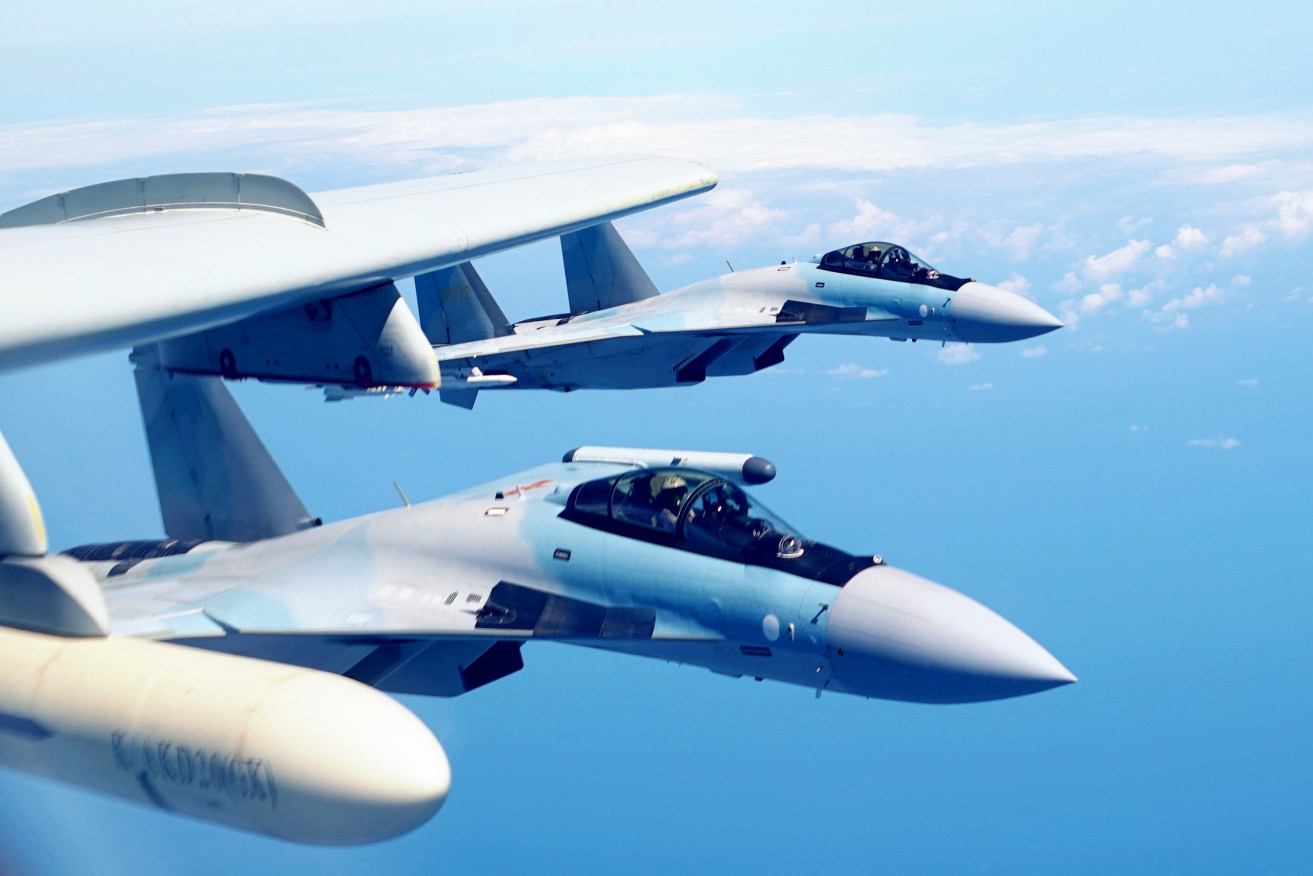Australia, South Korea ink defence deal

Chinese aggression must be curbed by military and diplomatic deterrence, Richard Marles says. Photo: AAP
Australia and South Korea have signed new agreements to enhance military co-operation.
Defence Minister Richard Marles met with his South Korean counterpart Shin Won-sik in Seoul on Thursday, where the pair inked new memorandum of understandings between both nations’ armies, navies and air forces.
They will enable more complex military drills to be conducted together.
Addressing the Seoul defence dialogue, Mr Marles declared “the shadow of war still haunts us”.
He warned of the potential for conflict in the region, including if Taiwan becomes a flashpoint between the US and China.
Marles said deterrence needed to be put in place to ensure China or North Korea didn’t follow Russia’s footsteps after it invaded Ukraine.
The decisions made by South Korea, the US and partners like Australia after the armistice helped uphold the peace that exists today, he said.
“This is a lesson we need to heed today because the choices we make today will be vital,” he said.
“North Korea remains to this day an enormous source of insecurity, impoverishing its people even as it invests in an illegal nuclear and ballistic missile weapons programs.”
The two ministers also signed a peace operations memorandum of understanding focused on training and co-operation.
An enhanced bilateral defence agreement is being explored.
‘Challenging new period’
Marles said Australia and like-minded nations needed to ensure the conclusion drawn from Russia’s invasion wasn’t that aggressive states can successfully use force to change the international order.
The continued support of Ukraine’s defence was to ensure Europe’s failure to deter Russia’s invasion wasn’t repeated in the Pacific, he said.
“We must work together to navigate this challenging new period with nuance and judgment, with statecraft that ensures that no country judges that the benefits of conflict might outweigh the consequences,” he said, referencing Taiwan.
Australia doesn’t have a position on the final status of Taiwan – which China wants to re-integrate – other than any outcome must be reached peacefully and in line with the will of the people on both sides “and not through the use of force or coercion”.
“But the consequences of US-China conflict over Taiwan are so grave that we cannot be passive bystanders,” Marles said.
This includes flexing both diplomatic and military muscles, he said.
“Getting the hard power equation right is only part of the picture.
“Australia’s first response is to deepen our network of strategic partnerships in the Indo-Pacific, it will take a network of states acting together.”
–AAP






